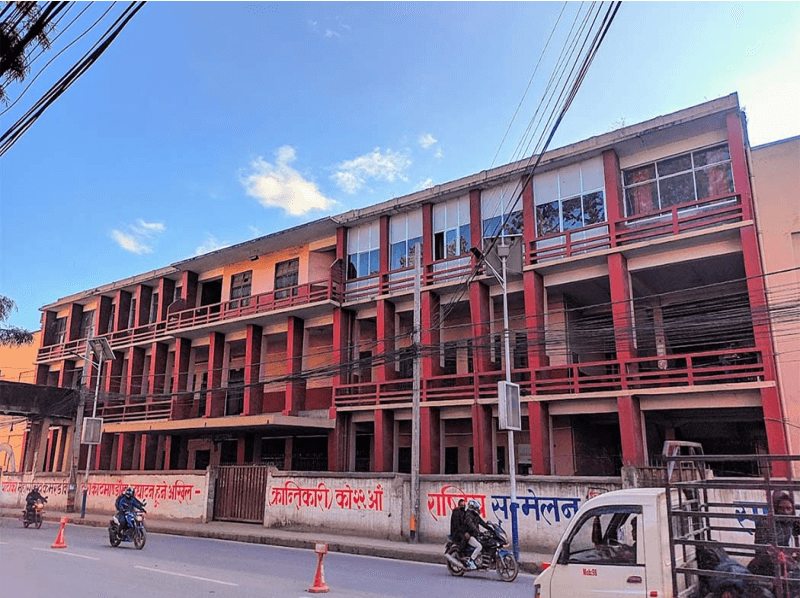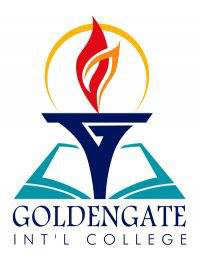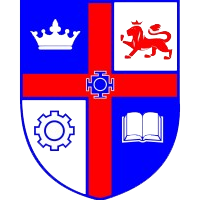Overview
Amrit Science Campus (ASCOL College), Lainchaur, Kathmandu, was established in 1962 AD and is a distinguished institution in Nepal. It is one of the country's premier science campuses. Shaped the careers of numerous accomplished professionals in various developmental endeavors nationally and internationally. As a semi-autonomous institution under the Institute of Science and Technology, ASCOL is affiliated with Tribhuvan University.
ASCOL College offers a comprehensive range of bachelor's and master's programs, providing students with various choices in the scientific IT domain. The campus offers BSc, MSc, BSc CSIT, BIT, and MIT programs. The key streams are Physics, Chemistry, Mathematics, Botany, Zoology, Statistics, Computer Science, Environmental Science, and Microbiology courses. ASCOL currently hosts nearly 1900 students pursuing their education at different levels.
Vision:
The vision of Amrit Science Campus is multifaceted. It aims to develop highly skilled and competent human resources in science and technology. The campus strives to enhance the quality of education by improving classroom facilities and upgrading infrastructure. The ASCOL is committed to fostering scientific to maintain relevance and accuracy in research activities that contribute to the development of human resources. The campus envisions establishing a research-oriented education system up to the Ph.D. level and elevating all departments to the "Center for Excellence."
Mission:
The mission of ASCOL encompasses several key objectives. The campus seeks to introduce master's level courses in Botany, Chemistry, Zoology, Microbiology, and Computer Science Information Technology (CSIT). To support these programs, ASCOL endeavors to construct new infrastructure that meets the requirements of the aforementioned master's level courses. Furthermore, the campus fosters healthy teaching and learning that nurtures critical thinking, effective communication, and marketable skills essential for success in the global job market. ASCOL also aims to enhance classroom and laboratory facilities by incorporating modern amenities such as LCD projectors and internet connectivity, enabling the sharing of updated knowledge.
Values:
At Amrit Science Campus, a set of core values guides the actions and decisions of its faculty, staff, and students. These values include commitment to quality, Enco that provides activity and innovation, fostering teamwork, embracing compassion, upholding integrity, celebrating diversity, and promoting professionalism. These values form the foundation of ASCOL's educational environment, ensuring holistic development and preparing individuals to become responsible and ethical contributors to society.
Amrit Science Campus (ASCOL) is a beacon of scientific education dedicated to nurturing exceptional talent, fostering groundbreaking research, and promoting academic excellence. By upholding its vision, mission, and core values, ASCOL continues to empower the next generation of science and technology professionals in Nepal and beyond.

Salient Features
Reference Library Catering to Academic and Research Needs
The Amrit Science Campus library is designed to serve as a reference library, catering to the needs of students, teachers, science researchers, and professionals. Its primary focus is to support the academic and research requirements of individuals associated with Amrit Campus.
Specialized Collection in Science and Technology
The library boasts a specialized collection of books and reference materials curated explicitly for science and technology disciplines. This collection includes a wide range of resources, such as books, theses, journals, and project reports, which are essential for research purposes. These materials receive high priority in the library's holdings.
Extensive Collection of Books and Resources
With a diverse collection of books and resources, the Amrit Science Campus library currently holds over 32,000 items, including books, theses, and reports. It has been continuously expanding its collection to meet the evolving needs of students and researchers. It ensures that the library remains a comprehensive repository of knowledge.
Ongoing Maintenance and Upgradation
The library regularly reviews its collection to maintain relevance and accuracy. As part of this process, over 20,000 books belonging to the phase-out Intermediate level of Tribhuvan University (2065 B.S.) have been identified for removal. The library plans to weed out these outdated materials, ensuring the collection remains up-to-date and aligned with current educational standards.
Access to Contemporary Magazines and Newspapers
In addition to its book collection, the library provides access to several contemporary magazines and newspapers. This allows students and researchers to stay updated on the latest developments in science, technology, and other relevant fields. Daily newspapers are readily available for reading within the library.
Online Resources for Research and Learning
The Amrit Science Campus library acknowledges the importance of digital resources in the modern era. It offers free access to online resources, including the full-text INASP package and Research4life package (AGORA, ARDI, GOALI, Hinari, OARE). These resources provide valuable academic and research materials, enabling users to access a wide range of scholarly content conveniently.
The Amrit Science Campus library is a valuable resource hub, providing a conducive environment for academic pursuits and research endeavors. With its specialized collection, access to online resources, and commitment to maintaining an updated and relevant collection, the library plays a crucial role in supporting the educational and research goals of the campus community.
Admission Guidelines:
Amrit Science Campus (ASCOL) follows a fair and transparent admission process. Prospective students are encouraged to review and fulfill the admission guidelines mentioned above. By meeting the eligibility requirements and submitting the necessary documents within the specified timeframe, applicants can take the first step towards pursuing their B.Sc. education at ASCOL.
To enroll in any of the B.Sc. programs offered at Amrit Science Campus (ASCOL), prospective applicants must meet the following criteria:
Eligibility Requirements
-
Applicants must have successfully graduated from the TU I.Sc. program or an equivalent program recognized by the campus.
Application Form Submission
-
All interested applicants must complete the application form provided by Amrit Science Campus.
-
The application form can be obtained from the campus office or downloaded from the official website.
-
It is essential to fill out the form accurately and provide all the necessary information as requested.
Document Submission
-
Applicants must attach a copy of their I.Sc. (or equivalent) transcript and the completed application form.
-
A copy of the School Leaving Certificate mark sheet should also be submitted.
-
The transcripts and certificates serve as proof of academic qualifications and are crucial for admission.
Admission Notice
-
Amrit Science Campus will publish a notice inviting applications for admission to the B.Sc. programs.
-
The notice will contain important information such as application deadlines, required documents, and additional instructions or guidelines.
-
Applicants should regularly check the campus website, notice boards, or other official communication channels for updates regarding admissions.
Courses Offered
Amrit Science Campus (ASCOL), affiliated with Tribhuvan University, offers a wide range of undergraduate and postgraduate courses in various scientific disciplines. The duration for Bachelor-level programs is four years, while Master-level programs typically span two years. Here are short descriptions of each course:
1. BSc Computer Science and Information Technology (BScCSIT)
- This program focuses on computer science, information technology, and software development.
- Students gain knowledge and skills in programming, algorithms, database management, networking, web development, and software engineering.
2. MSc Physics
- The Master of Science in Physics program provides advanced knowledge and research opportunities in various subfields of physics.
- Students engage in theoretical and experimental studies, covering areas such as quantum mechanics, electromagnetism, optics, and astrophysics.
- This course explores the interactions between humans and the environment, aiming to understand and address environmental issues.
- Students study topics such as ecology, biodiversity, pollution control, natural resource management, and sustainable development.
-
The Bachelor of Science in Microbiology program focuses on studying microorganisms, including bacteria, viruses, fungi, and parasites.
-
Students learn about microbial diversity, pathogenicity, immunology, genetic engineering, and industrial applications of microorganisms.
5. BSc Physics
- This program provides a foundational understanding of physics principles and theories.
- Students delve into topics like classical mechanics, electromagnetism, thermodynamics, quantum mechanics, and solid-state physics.
- The Master of Science in Mathematics program offers advanced coursework in various areas of pure and applied mathematics.
- Students explore subjects like algebra, analysis, geometry, differential equations, mathematical modeling, and optimization.
- This course focuses on the study of plants, including their structure, classification, physiology, ecology, and conservation.
- Students gain knowledge in areas such as plant anatomy, plant taxonomy, plant biotechnology, and plant ecology.
- The Master of Science in Chemistry program provides in-depth knowledge of chemical principles and their applications.
- Students explore organic, inorganic, and physical chemistry, as well as analytical techniques, spectroscopy, and chemical synthesis.
9. Bachelor in Information Technology (BIT)
- The Bachelor in Information Technology program focuses on the application of technology in various industries and organizations.
- Students learn about programming, database management, system analysis, networking, web development, and IT project management.
10. BSc Botany
- This program offers comprehensive knowledge of plant biology, including plant diversity, anatomy, physiology, and ecology.
- Students study topics such as plant taxonomy, plant genetics, plant biotechnology, and plant conservation.
11. BSc Chemistry
- The Bachelor of Science in Chemistry program covers fundamental concepts of chemistry, including organic, inorganic, and physical chemistry.
- Students gain practical skills in laboratory techniques, chemical analysis, and chemical synthesis.
12. BSc Mathematics
- This program provides a solid foundation in mathematics, covering areas such as calculus, algebra, discrete mathematics, and statistics.
- Students develop analytical and problem-solving skills applicable to various fields.
13. BSc Statistics
- The Bachelor of Science in Statistics program focuses on statistical theory, methods, and applications.
- Students learn about data analysis, probability, statistical modeling, experimental design, and statistical software.
14. BSc Zoology
This program explores the diverse world of animals through the study of zoology. Students delve into topics such as animal anatomy, physiology, evolution, behavior, ecology, and conservation. They gain a comprehensive understanding of various animal groups, ranging from invertebrates to vertebrates, and develop practical skills in fieldwork, laboratory techniques, and data analysis.
15. MSc Zoology
- The Master of Science in Zoology program offers advanced studies in the field of zoology, focusing on specific areas of research and specialization.
- Students engage in in-depth exploration of topics such as animal behavior, evolutionary biology, ecology, genetics, conservation biology, and marine biology.
16. Master of Information Technology (MIT)
- The Master of Information Technology program is designed to equip students with advanced knowledge and skills in information technology.
- Students specialize in areas such as software development, database management, network security, artificial intelligence, and data analytics.
At Amrit Science Campus (ASCOL College), these diverse courses allow students to pursue their interests in scientific disciplines and develop expertise in their chosen fields. The campus's affiliation with Tribhuvan University ensures that these programs meet rigorous academic standards, preparing students for successful careers or further educational pursuits in the scientific domain.
Contact Amrit Science Campus's administrative office for detailed information on the course, admissions, location, fees, scholarships, facilities, counseling, or eligibility.


















